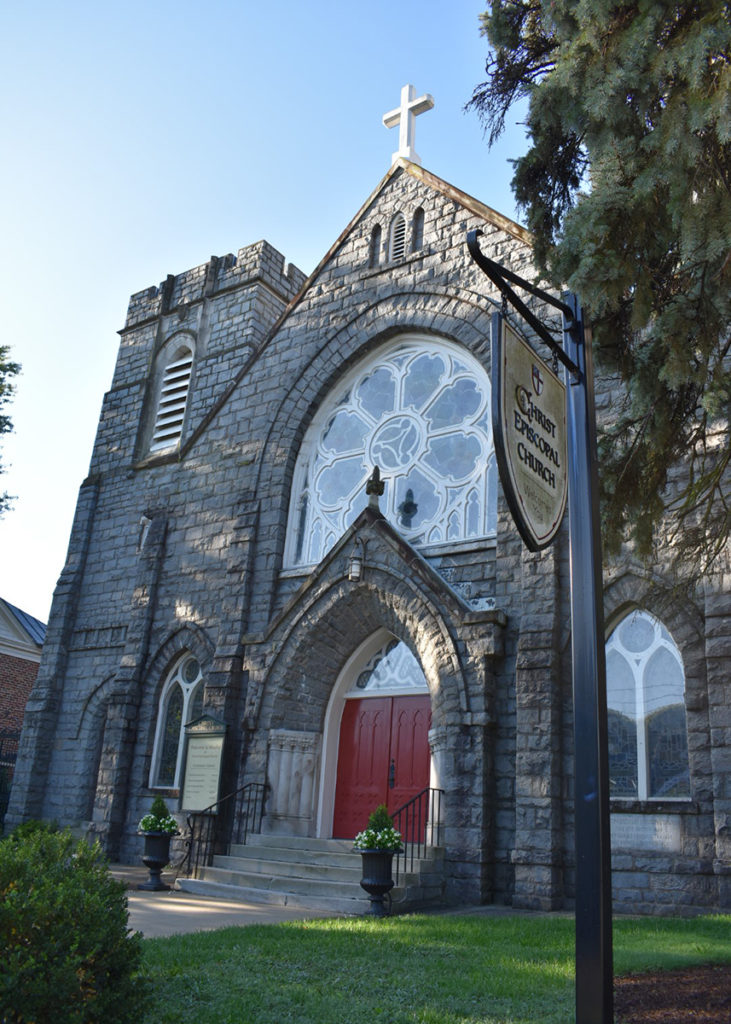Our friends at ENS report that Episcopal congregations in Charlottesville, Virginia are hopeful the Confederate statues in their city will soon be removed.
Three years ago, Charlottesville was the epicenter of a renewed national debate over the legacy of slavery and the Confederacy after a white supremacist rally in August 2017 ended in clashes and violence, including the killing of a counterprotester. The hate groups said they chose Charlottesville in opposition to the city’s plan to remove its statue of Confederate Gen. Robert E. Lee.
Episcopalians joined others in the community in disavowing white supremacy, demonstrating alongside the counterprotesters. A month later, Presiding Bishop Michael Curry traveled to Charlottesville for a pastoral visit that emphasized the racial healing efforts of the three Episcopal churches in the city.
Charlottesville’s Confederate statues remain in place for now, however, because of a court injunction against their removal. The one depicting Lee astride his horse is impossible for the Rev. Paul Walker to ignore. As rector of Christ Episcopal Church in downtown Charlottesville, Walker’s office overlooks Emancipation Park, home to the Lee statue.
“I’m looking at it right now,” Walker told Episcopal News Service by phone on July 1. He’s encouraged by the recent momentum against Confederate symbols, but time will tell whether it leads to the removal of Charlottesville’s statues of Lee and Stonewall Jackson, another Confederate general.
“There’s been so much back and forth with it, I don’t put a whole lot of stock in anything until it actually happens,” Walker said.
… At Trinity Episcopal Church, a historically Black congregation northwest of downtown that now includes a multicultural mix of parishioners, some members of the congregation are active in the recent protests, according to the Rev. Cass Bailey, Trinity’s vicar.
“I think people are cautiously optimistic,” Bailey told ENS. “There seems to be broader momentum around addressing some of these issues.”
The church, founded in 1919, has long been involved in social justice advocacy work, he said, so “it’s not new to us.” But he senses other congregations now are willing to take up that work as well. On a recent Zoom meeting with diocesan clergy leaders, planning church responses to systemic racism dominated the conversation.
“I think it’s still very much a prominent issue for members of the congregation, as well as people in the city of Charlottesville,” Bailey said. As long as the statues remain standing, he said, they will remain powerful symbols of white supremacy.
This follows a new law signed by Virginia governor Ralph Northam this past April which was intended to ease the process of taking down the Confederate statues, many of which were installed during the Jim Crow era in the late 19th century. The legal battle over the Charlottesville monuments began in 2017, following a vote by the City Council to remove them. The Daily Progress reports that this suit is ongoing:
Last month, the prevailing plaintiffs in a lawsuit over two Charlottesville City Council votes to remove downtown statues of Confederate Gens. Robert E. Lee and Thomas “Stonewall” Jackson ceded to a new law that went into effect Wednesday, asking to partially dissolve a previously granted injunction preventing the removal of the statues.
… “New legislation enacted by the General Assembly expressly grants to every locality the sole authority to determine the final disposition of a monument or memorial, after the locality has satisfied certain procedural requirements,” [City Attorney John] Blair wrote.
photo credit: Episcopal News Service

